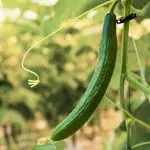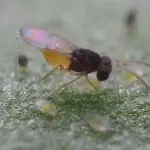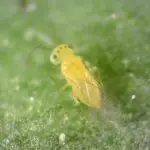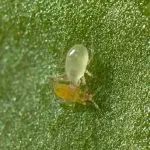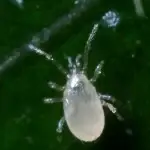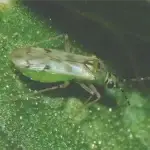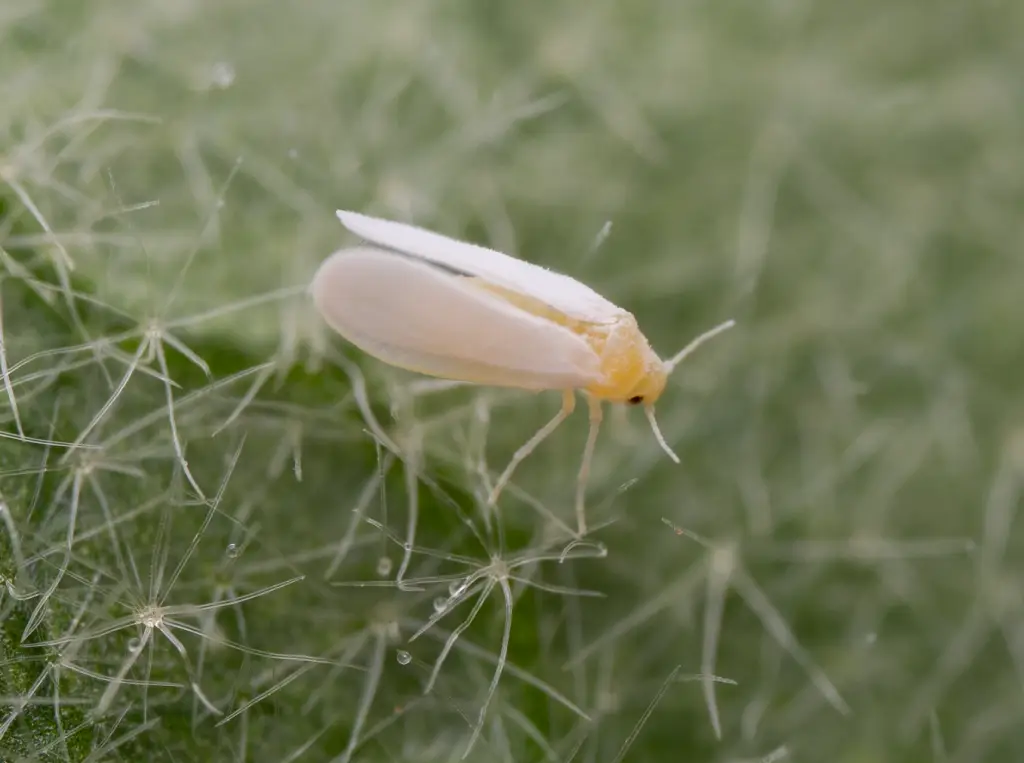Silverleaf Whitefly
Overview
The Silverleaf Whitefly (Bemisia tabaci) was first found in Australia in the mid-1990s.
Overseas, it is a serious pest of a wide range of vegetables, ornamental, cotton and flower crops. The predominant biotype found in Australia is Biotype B which in many countries overseas is considered a separate species, Bemisia argentifolii. Biotype B infests tomatoes, brassicas and cucurbits such as pumpkin, melons, squash and cucumbers.
The lifecycle of the Silverleaf Whitefly is very similar to that of the Greenhouse Whitefly however there are marked differences. Silverleaf Whitefly eggs are brown (not black), pupae are broad and flat (not raised), adults are slightly smaller and their wings are carried parallel to the body in a tent like configuration with a gap in between them, whereas Greenhouse Whitefly wings are flatter and overlapping.
Silverleaf Whiteflies tend to prefer slightly warmer temperatures than Greenhouse Whiteflies and with a higher tolerance to many insecticides, tend to be much harder to control than Greenhouse Whiteflies.
Silverleaf Whiteflies can be found in conjunction with Greenhouse Whiteflies.
Why you need to control Silverleaf Whitefly
Silverleaf Whiteflies can be problematic for your crop several reasons.
At the ‘scale’ or larval stage Silverleaf Whiteflies secrete honeydew while they feed on the plant cells. This leads to sooty mould growing on the affected leaves and fruit. Not only does this reduce the photosynthetic productivity and general vigour of your plant, but the stained parts of the plant are are often downgraded. In cucurbits infected crops exhibit silver leaf symptoms and hence the name Silverleaf Whitefly.
Silverleaf Whitefly adults are also vectors of several economically important plant viruses.
It is important to note that Silverleaf Whiteflies are already resistant to most of the existing insecticides, making an IPM program even more important.
Beneficial predators to control Silverleaf Whitefly among crops
Biological Services produces a range of products to help you control Silverleaf Whitefiles in your commercial crop and can design a program using different biological controls to manage the pest at different stages of its lifecycle to suit your growing environment.
This can include Eretmocerus hayati, the generalist predatory bug Nesidiocoris tenuis (Nesidiocoris) and Typhlodromips montdorensis (Montdorensis).
You can also use yellow sticky traps and rolls to help you monitor and mass-trap Silverleaf Whiteflies.
Get tailored advice for your commercial crop
To speak with one of our qualified consultants about your current commercial crop challenge or to learn about the benefits of the IPM maintenance and monitoring services we provide, contact us.



